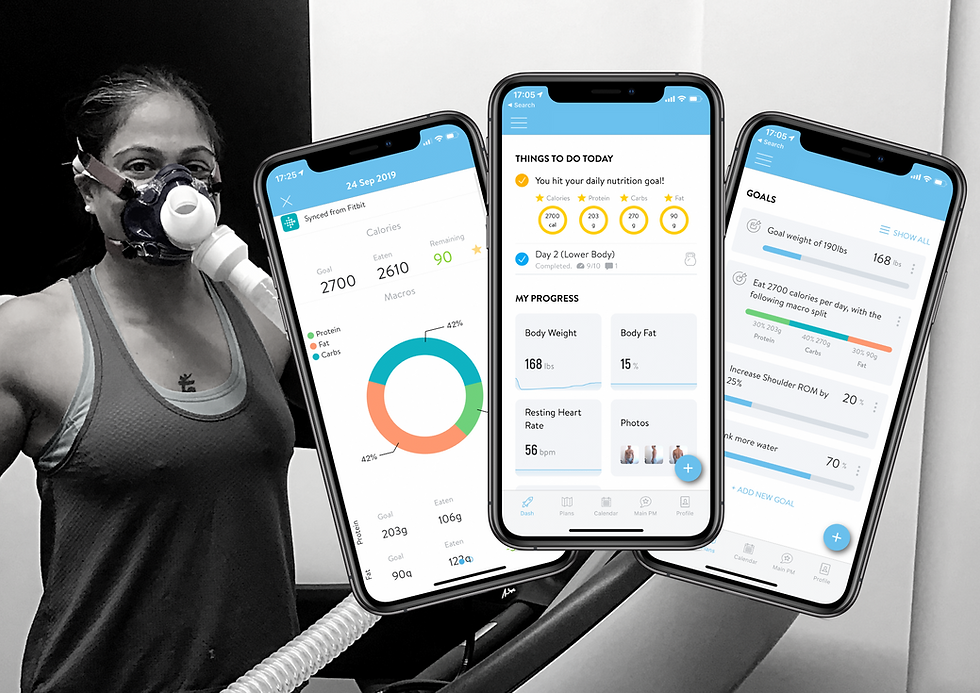6 Myths Busted about boosting your metabolism
- Jack Braniff

- Mar 4, 2022
- 2 min read
Updated: Aug 18, 2022

There are many myths and misconceptions when it comes to boosting your metabolism. Here are six of the most common ones, debunked.
Myth #1 - Muscle burns more calories than fat
Although technically true, the difference is negligible. You'll roughly burn 4-8kcals more per pound of muscle than per pound of fat per day. So if you put on 2lbs of muscle which isn't easy, you could burn an extra 20kcals per day...... That's less than a carrot.
Myth #2: Eating more often speeds up your metabolism
Thermic Effect of Feeding (TEF) is the energy needed to digest and absorb food. So more meals would mean higher TEF? No.
If calories are kept constant, your TEF will be the pretty much the same whether you need to digest 2000 calories from 2, 3, 4 or 7 meals per day.
Find a meal pattern than suits you and your schedule.
Myth #3 - Foods that speed up your metabolism
Foods like green tea, caffeine, ginger chili may provide a TEENY boost in your metabolism, but not enough to make any difference to your weight. You're talking an extra 50kcals - 1/4 of a biscuit.
Myth #4 - Exercise increases your RMR
Exercise like HIT training can increase calorie expenditure (1) after your workout, however only if you're NOT in a calorie deficit (2).
In fact, in untrained people, an increase in exercise can actually suppress their metabolic rate (shocking I know!) (2).
However, a big however. From experience (over 300 RMR tests now!), fitter people definitely do seem to burn far higher calories at rest compared to inactive individuals. This also seems to correlate with people who eat a lot.
So get fit and eat a lot!!
Myth #5: Sleep boosts your metabolism
Although it does have some favourable effects on body composition, this is not down to a boost in your metabolism. Sleep deprivation just means you're tired the next day so you move less and hunger hormone imbalances mean you eat more.
Myth #6: Your metabolism isn't slowing down with your age.
Another big recent study (4) showed how your metabolic rate plateaus from age 20 to 60. and then only declines by around 1% per year thereafter.
So don't blame your age, blame your lifestyle......
What should you do if you think you have a slow metabolism?
The only way to find out if you have a slow metabolism is through metabolic testing. At Box Nutrition we use metabolism testing to help come up with a diet plan to match your needs an an individual. If your metabolic rate is slow, then we can show you what you can do about it.
Are you struggling with a weight loss plateau?
Ignite can help!
Our weight loss programme uses metabolic testing to design a diet and exercise plan tailored to your individual needs and unique metabolism.
Choose from just an RMR metabolism test or a full testing fat loss package. Find out more www.boxnutrition.co.uk/ignite
Further Reading
(1) A systematic review and meta-analysis of interval training versus moderate-intensity continuous training on body adiposity
(2) Interaction of acute changes in exercise energy expenditure and energy intake on resting metabolic rate
(3) Energy compensation and adiposity in humans
(4) Daily energy expenditure through the human life course




















I thought PhD research proposal writing services were just about formatting — turns out, they can help with killer topics too. This 50+ ideas list is packed with measurable, data-driven options. I picked “The relationship between unemployment and inflation rates,” and my supervisor loved it. Seriously, “Catch the wave with the best quantitative research proposal topics from our experts!” is spot-on.
RoyalWriter.co.uk research paper writers is a real lifesaver for busy students. I used their service for my nursing assignment, and the quality blew me away. It wasn’t just grammatically flawless but also deeply researched and logically structured. What impressed me most was the originality – no plagiarism, which I was worried about initially. The writer even offered revisions quickly when I requested a small change. Customer support was also fast and kind, answering all my concerns. Honestly, I felt like I could trust them with any subject. Highly recommend RoyalWriter.co.uk for students who care about quality and academic integrity.